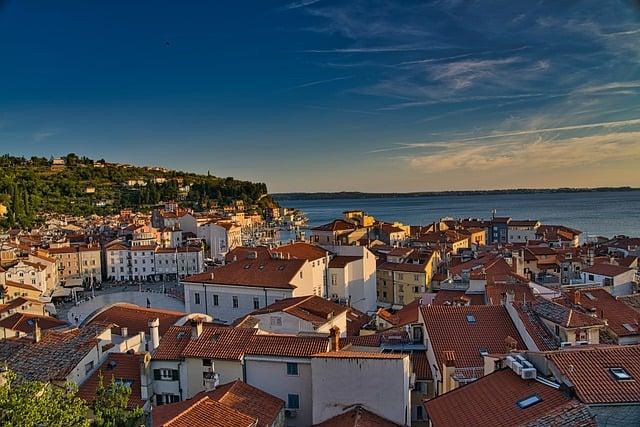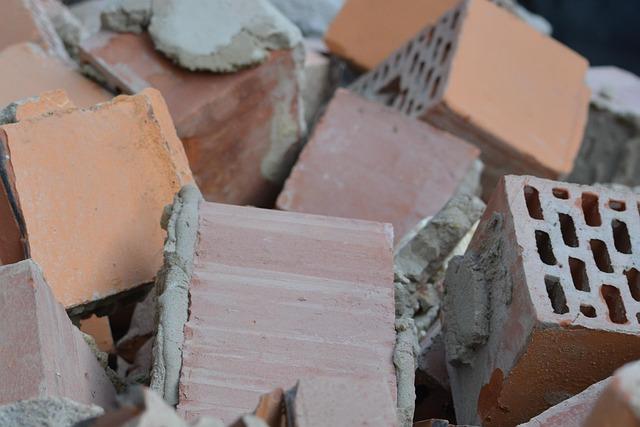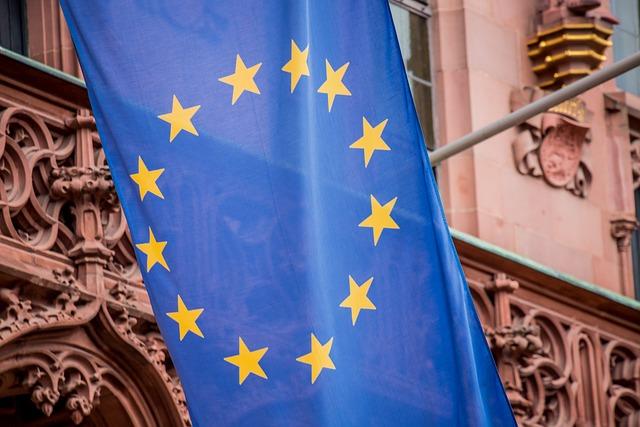Influence of the EU Solidarity Fund in Addressing climate-induced Restoration
The EU Solidarity Fund (EUSF) has emerged as a crucial mechanism in supporting member states like Slovenia and Greece of their restoration from devastating climate-induced disasters. Following extreme occasions resembling floods and wildfires,the fund gives monetary help that permits fast and efficient response measures. The impression of this assist is multifaceted: it fosters not solely quick aid but additionally the long-term resilience of affected areas. By means of this funding, nations can deal with important restoration operations, together with:
Infrastructure repairs: Restoring important companies and public infrastructure broken throughout disasters.Environmental restoration: Initiatives to rehabilitate ecosystems affected by local weather occasions.Neighborhood assist: Help for native populations, permitting them to rebuild their lives and livelihoods.
Furthermore, the EUSF encourages member states to undertake preventive measures in opposition to future disasters, linking restoration to sustainable practices. Funding is ceaselessly sufficient allotted for initiatives that improve adaptive capability, resembling improved flood administration methods or reforestation efforts. A better take a look at current allocations reveals simple but impactful investments:
CountryAmount Allotted (€)PurposeSlovenia100 millionRestoration of flood-damaged infrastructureGreece80 millionWildfire restoration and reforestation initiatives
Case research: Slovenia and Greeces Resilience Constructing Initiatives

Slovenia has applied a collection of revolutionary resilience constructing initiatives following the extreme flooding occasions of current years. with the assist of the EU Solidarity fund,the Slovenian authorities targeted on enhancing infrastructure and strengthening catastrophe preparedness.Key measures embrace:
Bolstered flood defenses: Upgrading current levees and developing new boundaries to guard weak areas.Neighborhood coaching packages: Partaking native populations in emergency response coaching workouts to bolster group resilience.Ecological restoration: Initiatives geared toward restoring wetlands and pure floodplains to soak up extra rainwater.
In Greece, related efforts are underway to deal with the challenges posed by wildfires and excessive warmth waves. the EU Solidarity Fund has performed an important function in financing these initiatives. With a deal with group engagement and environmental stewardship, Greece has adopted a number of measures together with:
Firebreak creation: Creating strategic firebreaks in high-risk areas to halt the advance of wildfires.public consciousness campaigns: Elevating consciousness about hearth prevention and response methods amongst residents.Forest administration practices: Implementing sustainable forestry methods to cut back gasoline hundreds and improve forest well being.
Monetary Breakdown: How EU Assist is allotted to Catastrophe Restoration Efforts

The allocation of economic assets from the EU Solidarity Fund performs an important function within the restoration efforts following climate-related disasters in international locations like Slovenia and Greece. The fund primarily focuses on offering quick help to the affected areas, making certain that important companies resembling housing, healthcare, and infrastructure might be restored promptly. Monetary assist is rigorously distributed based mostly on the severity of the harm and the pressing wants recognized by assessments carried out on the bottom. Key areas the place the funding is directed embrace:
Emergency Reduction Companies: Protecting quick response prices, together with short-term shelter and medical care.Infrastructure Reconstruction: Rebuilding roads, bridges, and public amenities which have sustained harm.Agricultural Assist: Aiding native farmers in recovering from crop losses and restoring farming actions.Environmental Restoration: Addressing the impacts of disasters on ecosystems and selling sustainable rebuilding practices.
In a strategic method, monetary assist shouldn’t be merely a one-time infusion of money however quite a structured disbursement that spans a number of phases of restoration. For example, the EU allocates funds by particular classes that replicate the outlined restoration priorities. The next desk illustrates the distribution of the monetary allocation within the current circumstances of Slovenia and Greece:
CountryEmergency ReliefInfrastructureAgricultural AssistanceEnvironmental RestorationSlovenia€50 million€120 million€30 million€20 millionGreece€100 million€90 million€40 million€25 million
Lengthy-term Methods for Local weather Adaptation in Affected Areas

As areas like Slovenia and Greece grapple with the rising frequency and severity of climate-related disasters,the adoption of long-term methods for local weather adaptation turns into important. Investing in resilient infrastructure is a crucial step; this consists of retrofitting buildings to resist floods and storms, creating inexperienced areas that soak up extra rainwater, and enhancing the robustness of transportation and power methods.Native governments can provoke workshops to coach residents on sustainable practices, making certain that communities are well-prepared for future challenges. Collaboration with environmental organizations to revive pure ecosystems also can contribute to each local weather resilience and biodiversity.
Together with infrastructure enhancements, the event of early warning methods is paramount to mitigate dangers related to local weather extremes. These methods can present well timed info to communities about impending disasters, permitting for swift motion and lowering potential losses. Schooling and outreach packages that emphasize the significance of local weather adaptation can empower residents to take proactive measures of their private and group planning. A deal with sustainable agriculture practices will even play a crucial function in making certain meals safety, enhancing soil well being, and lowering carbon footprints throughout affected areas.
Future Suggestions for Strengthening EU Solidarity in Disaster Administration

Contemplating current climate-related disasters, it’s important for the European Union to discover revolutionary methods to bolster resilience and unity amongst member states. One proposal is the enhancement of interstate cooperation frameworks that encourage data sharing and greatest practices in catastrophe preparedness and response. This collaboration may take the type of common joint coaching workouts and simulation drills designed to familiarize member states with a coordinated response protocol, making certain that each one events are well-equipped to behave swiftly and successfully when crises come up.
Moreover, the EU ought to think about establishing a multi-tiered funding method that not solely gives quick catastrophe aid by the EU Solidarity Fund but additionally allocates assets for long-term rebuilding and local weather resilience initiatives. This may be achieved by creating particular classes inside the Fund to focus on numerous wants, resembling infrastructure restoration, environmental restoration, and group resilience initiatives. A well-structured funding technique wouldn’t solely assist member states in recovering from disasters but additionally promote sustainable growth throughout the area,paving the best way for a extra resilient future.
Coverage Implications: Enhancing Coordination Between EU Member States and Native Authorities

Contemplating current climate-related disasters in Slovenia and Greece, it’s crucial that EU coverage makers prioritize a framework that strengthens the synergy between member states and native authorities. Such coordination is essential for efficient catastrophe response and restoration initiatives.Centralized efforts can usually result in delays and bureaucratic hurdles; due to this fact, a decentralized method that nurtures native experience whereas receiving EU assist may yield faster and more practical options. Key features to contemplate embrace:
Well timed Info Sharing: Establishing sturdy dialogue networks between the EU and native governments enhances real-time knowledge sharing throughout emergencies, permitting for swift motion and useful resource allocation.Useful resource Allocation: Creating a transparent mechanism for funding distribution that prioritizes native wants fosters resilience and preparedness earlier than disasters strike.Greatest Practices Trade: Implementing platforms for sharing profitable restoration methods amongst member states can encourage revolutionary native approaches to catastrophe administration.
Furthermore, incorporating native authorities into the EU’s catastrophe threat discount plans will make sure that these entities are adequately geared up and skilled to deal with emergencies. This implies empowering municipalities with instruments and assets essential for efficient disaster administration, which can embrace:
Instrument/ResourceDescriptionEarly Warning SystemsTechnological methods to foretell and disseminate details about potential local weather threats.Native Coaching ProgramsWorkshops and simulations to arrange native officers and residents for emergency responses.Funding for InfrastructureInvestments in climate-resilient infrastructure can mitigate harm throughout occasions.
By adopting these methods, the EU can make sure that native authorities will not be solely responsive but additionally proactive of their method to local weather resilience, in the end resulting in a extra cohesive restoration framework throughout the area.
The Method Ahead
the European Union Solidarity Fund has confirmed to be an important useful resource for each Slovenia and Greece as they grapple with the aftermath of devastating climate-related disasters. By offering essential monetary help, the EU not solely underscores its dedication to solidarity amongst member states but additionally highlights the pressing want to deal with the escalating impression of local weather change throughout Europe. The assist acquired allows these nations to rebuild infrastructure, restore livelihoods, and improve resilience in opposition to future environmental challenges. Because the EU continues to navigate the complexities of local weather adaptation and restoration, the experiences of Slovenia and Greece function a poignant reminder of the significance of collaboration and proactive measures in safeguarding communities in opposition to the threats posed by an unpredictable local weather. The dedication to restoration and resilience isn’t just a nationwide precedence however a shared European endeavor, reinforcing the notion that within the face of adversity, unity is our strongest asset.
Source link : https://europ.info/2025/03/23/slovenia/support-from-the-eu-solidarity-fund-helps-slovenia-and-greece-recover-from-climate-related-disasters-european-commission/
Creator : Noah Rodriguez
Publish date : 2025-03-23 02:46:00
Copyright for syndicated content material belongs to the linked Source.


